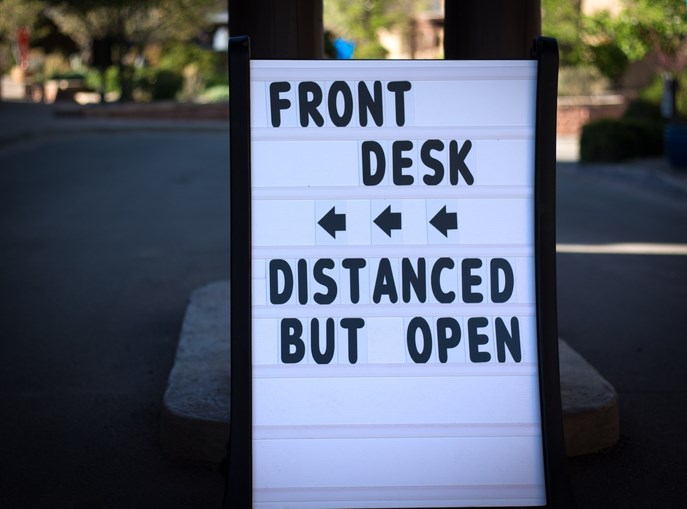With the transition of British Columbia into phase 3 of its four stage reopening plan, many residents are looking to hit the road and explore the province after several months cooped up at home.
Beyond some basic travel recommendations — which include such advisories as travelling within your bubble, bringing supplies with you and researching your destination before going — several aspects of the economy are expected to continue their march towards a full reopening.
Here’s what you can expect.
ACCOMMODATION
The accommodation industry, which includes hotels, motels, cabins and backcountry operators, was never ordered closed by the Provincial Health Officer. But with many doing so voluntarily, the province expects many will be soon be opening with certain precautions in place.
Those include physical distancing of two metres between workers and guests, advanced cleaning protocols in gyms, play areas and pools, and when staying in shared accommodations like hostels, operators are expected to institute protocols that separate beds two metres from one another and have guests sleeping head-to-toe.
No matter the type of accommodation, businesses must submit a safety plan in accordance with WorkSafeBC and ensure they are following hotel sector guidance and orders around workplace safety and mass gatherings.
CAMPING
When campsite reservations at BC Parks were opened up at the end of May, there was such a high demand, it crashed the booking website.
To mitigate the demand, campsites can only be booked on a rolling basis two months in advance. That means that if you missed out, you can still book a campsite for the end of the summer.
Preference will be given to B.C. residents, and those not from the province who have already booked a campsite should request a refund — that is unless they booked after May 25, after which no refunds will be provided and bookings will be cancelled.
However, even for B.C. residents, not all campgrounds are open and it’s best to check the BC Parks website for updates.
Other changes include restrictions on double campsites, which for this season can only have one group of up to eight people per booking. Two vehicles will be permitted without a fee.
Group sites and picnic shelters will remain closed.
FILM INDUSTRY
In announcing the move to stage 3 on June 23, Premiere John Horgan said he was hopeful a slow restart of the film and television industry in places like New York and California would be a boon for British Columbia.
But it won’t be business as usual.
WorkSafeBC has developed several guidelines for employers, and anyone visiting a set or production office is recommended to check in with them first. Expect protocols such as staggered work schedules, restrictions on visitors, pre-packaged food, reduced size of cast and crew and assigning single hairstylists and makeup artists to each actor while avoiding such services for background performers, if possible.
SCHOOL
About a third of public school students across the province have spent the last few weeks in class on a part-time basis. That gradual return will apply to teachers and other staff as they prepare for the 2020/2021 school year, which is scheduled to return full-time in September as part of the phase 3 reopening.
When it comes to the 25 post-secondary schools across the province, a full return to in-person instruction is less clear, with each institution deciding for itself how big of a role virtual learning will take in the fall.
WHAT’S NOT INCLUDED
The announcement of the move to phase 3 comes a day after new modelling suggested British Columbians maintain their personal contacts at 65% of normal or below. That, according to the modelling, would theoretically allow the province’s healthcare system to keep up with any new cases.
And the 50-person limit on public gatherings is not expected to change anytime soon, as contact tracers — who Provincial Health Officer Dr. Bonnie Henry said have been giving us the buffer we need to isolate clusters and move into phase 3 — have an easier time tracking down possible transmissions when bubbles are smaller.
Only when a vaccine, community immunity or a “broad successful treatment” is found will the province enter phase 4, a stage which triggers the reopening of international tourism and large public events like conventions, professional sporting events and conventions — and that, say health officials, is several months, if not years away.



